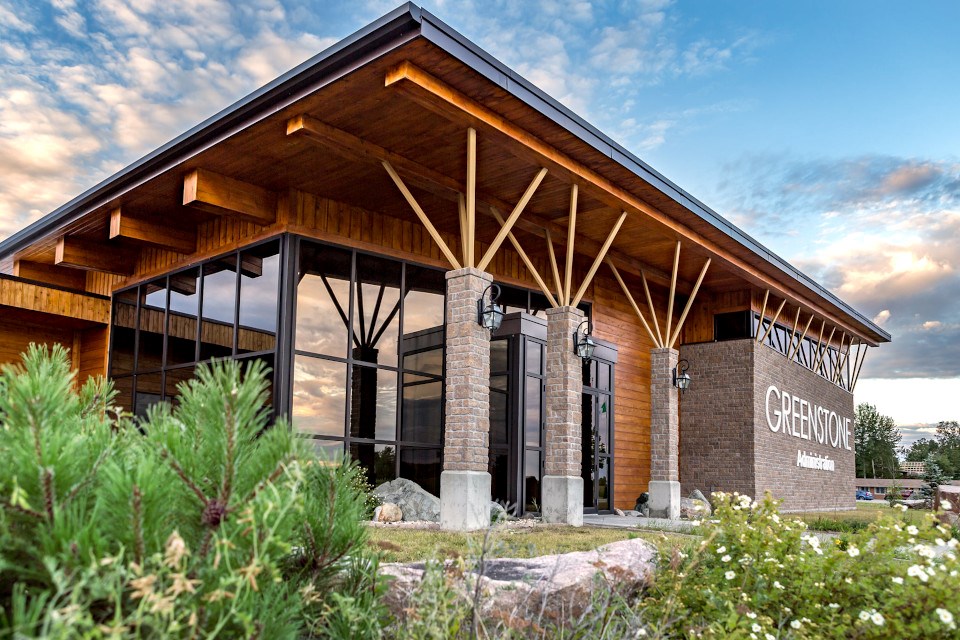GREENSTONE – Members of the public met with council to voice concerns over the proposed budget, which would result in a municipal tax levy increase of 5.5 per cent.
Longlac resident Karen Stevenson stood before council, asking why the Greenstone Gold mine isn't offsetting municipal operating costs.
“Everyone releases that Greenstone Gold mine is a boom for our region, but it’s also brought about some major issues and has affected the poorest of our communities, said Stevenson. “How much does this company pay in water, sewer, and taxes?”
Chief Administrative Officer Mark Wright wasn’t able to provide the specific dollar amount the mine pays, but said they are paying a commercial rate for the use of water and sewer.
“There is well into the six-figure benefit for the municipality to help offset any further increases,” said Wright.
Throughout Stevenson’s deputation, she addresses a significant issue many residents are facing with the raising cost of inflation.
However, Wright said that Stevenson’s reference to the 6.3 per cent consumer price index increase does not reflect the municipal rate.
“You noted the inflation rate for personal. The inflation rate for municipalities, especially with infrastructure, tends to be even higher. With something like water, with aging infrastructure, we are very limited to offset any cost,” Wright said.
Although the draft budget boasts that the increase is below current inflation rates, it also states that the achievement carries risk. A combination of increasing inflation and aging infrastructure has made cutting down the tax levy increase difficult.
“At the same time, the federal and provincial governments are adding further restrictions onto the municipality,” Sinclair said. "And I’ll give an example: Dechlorination. It’s a project we are undergoing at two different facilities. Purely as a result of a federal and provincial direction and we’re well into the $1-1.5 million range. That’s just an example of the cost we are expecting.”
Wright also noted that the expansion of the Geraldton water treatment plant is heavily supported by the mine and grants from the provincial government.
“There is a very significant amount of money the mine has provided to help support that expansion of infrastructure that otherwise we would have to take debt for and down the road levied more money from the ratepayers,” said Wright.
As for why the mine does not appear to be offsetting increased municipal operating costs, Terry Popowich and Sue Carlson proposed the question to council via correspondence and publicly from another resident of Geraldton.
"the mine has and still does pay property taxes on properties that they own. The houses that they bought the mine will still be paying tax on," Wright said.
"With that being said, a couple of things, with any business or any industry under construction, we can’t tax them. But as soon as the construction is complete, we will be able to tax at either the industrial or commercial rate depending on what the building is. So, we expect a couple of years out that we’ll start to see tax revenue from the mine.”
The mine is expected to begin operation halfway through 2024; therefore, the municipality is not able to budget those revenues for the 2023 fiscal year.
“It’s too much of an unknown to budget accordingly for this year,” Wright said.
Geraldton resident Diane Lafrance asked council in a letter about whether consideration has been given to saving money on hiring consultants for various project studies.
“Too much money is being spent on consultant fees when municipal administrative staff could do some. The salaries are competitive and should reflect qualifications and return on funds,” Lafrance wrote.
Sinclair said there are a few reasons the municipality uses consultants.
“Depending on the purpose, if we were to use that study for further leverage, we would go to a government for funding often time they require a third-party consultant. So, it’s not us writing the report. Second of all, expertise. While we have a great group of management and staff members, there are certain things beyond our expertise that we need to engage a third party,” said Wright.
Wright uses Greenstone’s housing strategy as an example. Consultants provide municipalities with options on different models of buildings that are achievable to build.
Further discussion will be held at the Feb. 27 meeting.
